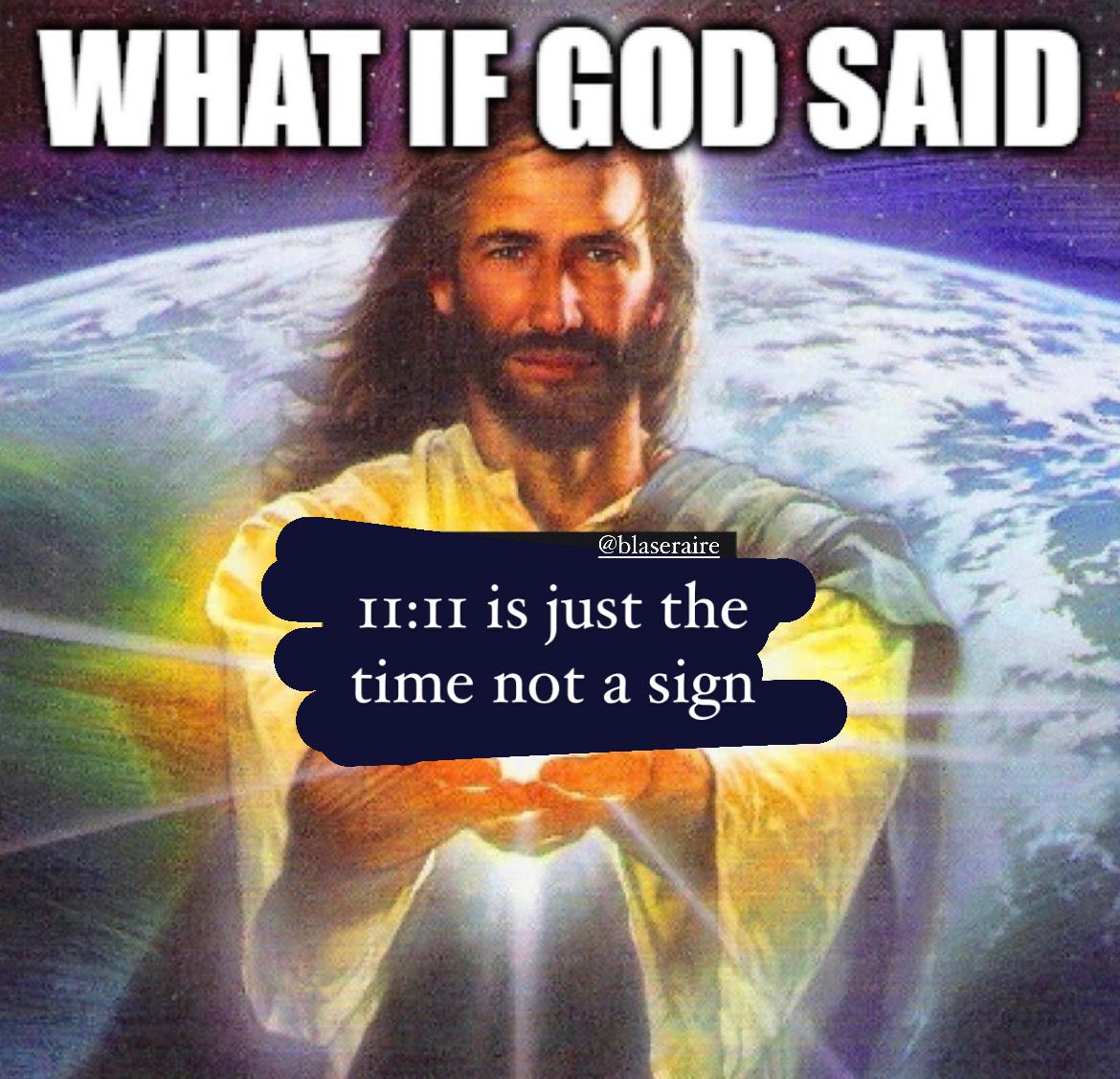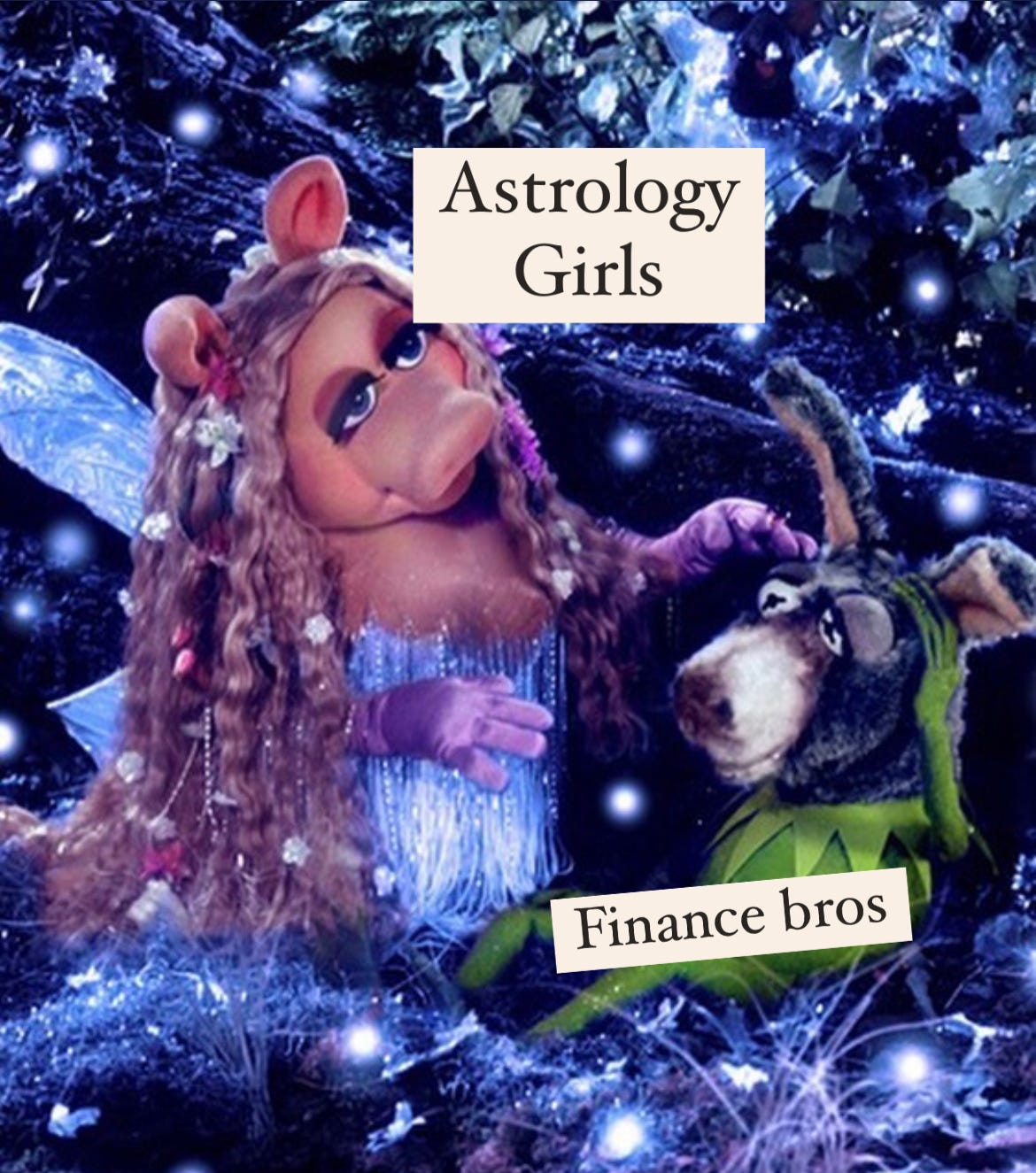Gazing at the Galaxies: Astrology as a Literal & Metaphorical Compass
Unit 3: Astrology & Money, Topic 3: Astrology as a Navigator
Hello Angel,
A quick note on how to engage with this article.
1. Like a class curriculum, each topic is part of a larger unit that dives into a distinct subject. Think of it like a vinyl record, each topic can be enjoyed as a track or fully experienced like an album. Subscribe to get them weekly in your inbox!
2. No knowledge gatekeeping here! We’re neophytes ourselves, presenting our laywomen’s research from topics that make us curious. If you see a bolded term, it is defined in the glossary at the end of this article.
3. Look out for underlined passages, these are your portal down the knowledge rabbit hole and lead to further reading. Insatiable? Original sources are merchandised on our interactive reference page at the end.
4. This is a *reciprocal* experience! We invite you to contemplate the discussion questions at the back. Or even cooler, forward the topic to a friend, colleague, or your crush and start a meaningful conversation.
Curiously,
Ambi & Abbey
Way before exchanges were made with printed bills or digital stock tickers, exchanges were often for greater means of survival. I give you two cows if you give me a portion of your potato crop; I give you some metals so you give me some spices type beat. More on the history of currency and how we strayed away from it being tied to physical assets here.
But one thing holds true between then and now: the future was still uncertain. Despite the means of understanding life being more limited in Ancient times, it was clear that there was an unpredictability about this whole human thing. Being alive came with an existentialism that needed to be quenched.
And so we looked up, and quite literally turned to the stars. Well before the advent of world maps, and definitely long before Co-Star, societies were navigating using maps of the constellations. They were also leaning on them for solace.
A brief astrological history
If your TikTok algo (or your last Hinge date) hasn’t yet introduced you to astrology, it is the belief system based on the idea that the positions of celestial bodies at the time of a person's birth or other significant events can influence their personality, behavior, and even their future.
Let’s take a look at how we got here….
The first humans to begin recognizing the movement of the planets and stars were the Sumerians in Mesopotamia, logging prominent constellations around 3000 BCE. This is when the Babylonians assumed the title of OG astronomers, creating the the first zodiac wheel.
Towards the end of the 5th century BCE, Babylonian astronomers divided the sky into 12 equal signs, each relating to a month of the year. They also assigned each of the 12 with a furry friend — an animal to represent the segment. Aaaaand this is how we got the name Zodiac — when the Greeks took a look at the system, they coined it the “zodiakos kyklos,” aka “animal circle.”
After the Greeks conquered Egypt around 330 BC, BCE-scholars established Horoscopic astrology, which combined Babylonian astrology with the Egyptian tradition of Decanic zodiac. Essentially it was an elixir of planetary Gods, sign rulership, and the four elements. (P.S. horoscope girlies — this is also around the time when sun, moon, and rising became more mainstream.)
Horoscopic astrology in its infancy was a tool to chart the celestial positions of the stars, sun, and moon at the time of a person's birth. These birth charts were employed to interpret an individual's personality traits and even their life path.
By the 1st century BCE, there were two widely adopted interpretations of astrology: the of reading horoscopes, which aimed to elaborate on past, present and future, and theurgic astrology, or “god-work,” which helped to describe the soul’s ascent to the stars and personal info.
During the 2nd century BCE, astrologer Claudius Ptolemy was the first to position a person’s birthplace and the stars — the first to develop the maps that we recognize today. He’s essentially the daddy of astrology.
From then on, astrology played a fundamental role in culture by the Middle Ages throughout the world. This began to fizzle a bit by the Age of Enlightenment, when the masses put science over theory in the collective spotlight…which basically leads us to today.
Looking for the light (within us)
A study in 2022 found that over 25% of people believe in it. That’s one in four people who turn to the stars to help explain everything from general mood to advice and even apartment color palettes.
“Studies also show that people often turn to astrology in response to stress and anxiety.” And there are a variety of (arguably anxiety-inducing) events that explain why we’ve seen a recent surge in the field — namely accessibility through social media, the pandemic, and the ever growing mental health crisis. Even though we’ve traded togas for Arcteryx, today’s generations are still looking for something to hold onto.
“Human beings constantly seek narratives to help weave their past, present, and future together through their goals and expectations — and that’s where astrology comes in.”
As younger generations in particular are more curious about themselves, having entered the world with the ability to explore at their fingertips, it only makes sense that this celestial exploration is one that can provide a sense of self-discovery.
This can be explained by the subjective validation theory, which in short, reflects the idea that individuals subjectively believe these statements are specifically tailored to them, even when they are not. “That’s so meeeeee XD,” ya know?
Does this not in some ways reflect how we as a society have internalized the subjective worth we assume we have through money’s presence or lack thereof in our lives?
Is it also not that far off that there was a point in time when we concerted our collective woes to a different but equally widely-accepted source of believed security?
Is significance alway starry-eyed?
Like we mentioned earlier, it is in our human nature to find narratives, BELIEFS, that help us wrap the story of our existence into a nice little bow.
This is especially true now that we are not fighting for survival, nor are we living in tune with the “natural systems” of the world.
Over the span of many centuries, early societies coexisted in sync with the cycles of nature, basing their hunting, gathering, and movements on the movements of the stars.
Our limbic systems are literally freaking the f*** out as they don’t know what to do with Casper mattresses and light after 6:00 PM…comforts that Ancient Egyptians could have never dreamed of.
But even without those comforts, they too needed a reason to live. Something that allowed them to make sense of what was being experienced. And as we look at that same phenomena today, have we just swapped this (ie. money) for that (ie. things like astrology)?
The more we dive in, the more we see that in fact, money might have more in common with astrology than we previously believed. In the next piece, we’ll explore how the two might share more similarities than differences — specifically how we all might just be professional wannabe future predictors rather than skilled finance bros or zodiac baddies.
Discussion Questions:
How do predictions of fate, like astrology, change the decisions we make?
How do theories shape your identity?
What would society look like today if we were more in tune with the natural world, ie. seasons, food sources, etc?
What beliefs do you find yourself turning to in times of stress or hardship?
Glossary:
Beliefs: Beliefs are mental attitudes or convictions that an individual holds to be true about something, often without the need for empirical evidence or proof.
Claudius Ptolemy: Claudius Ptolemy, often simply referred to as Ptolemy, was a prominent ancient Greek astronomer, mathematician, and geographer who lived in the 2nd century AD. He is best known for his influential works in the fields of astronomy and geography, which had a lasting impact on the development of these sciences.
Decanic zodiac: The Decanic Zodiac, also known as the Decans or Decantes, is a subdivision of the zodiac signs in astrology. In this system, each zodiac sign is further divided into three equal parts. Each decan is associated with specific planetary rulerships and influences, adding layers of meaning to the zodiac sign it belongs to.
Existentialism: Existentialism is a philosophical movement and worldview that emerged in the 19th and 20th centuries, primarily in Europe. It focuses on the individual's experience of existence and the inherent challenges, choices, and responsibilities that come with being human.
Horoscopic astrology: Horoscopic astrology, often simply referred to as astrology, is a system of belief and practice that uses the positions and movements of celestial bodies such as the Sun, Moon, planets, and stars to gain insight into human personality, behavior, and destiny.
Limbic system: When referring to the limbic system in the context of the "ancient brain," we are highlighting its evolutionary significance as one of the older and more primitive parts of the brain. In the ancient brain context, the limbic system is primarily associated with fundamental survival functions and basic emotional responses.
Subjective validation theory: Subjective validation theory, also known as the "Forer effect" or the "Barnum effect," is a psychological phenomenon that refers to the tendency of individuals to accept vague, general, or highly personalized statements as accurate descriptions of themselves, even when the statements could apply to a wide range of people.
Zodiac wheel: The term "zodiac wheel" refers to a circular diagram or chart used in astrology to represent the positions of the zodiac signs and celestial bodies at a specific moment in time, particularly at the time of a person's birth. It is a fundamental tool in horoscopic astrology for creating birth charts and analyzing astrological influences.
Sources:
Mystical History of Astrology: From Ancient Zodiac Maps To Modern Horoscopes
Share of people who believe in astrology in the United States as of April 2022
The 4,000 Year History of Horoscopes: How Astrology Has Been Shaped Throughout the Millennia
Where Do Zodiac Signs Come From? Here's the True History Behind Your Horoscope





